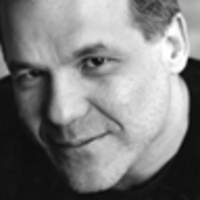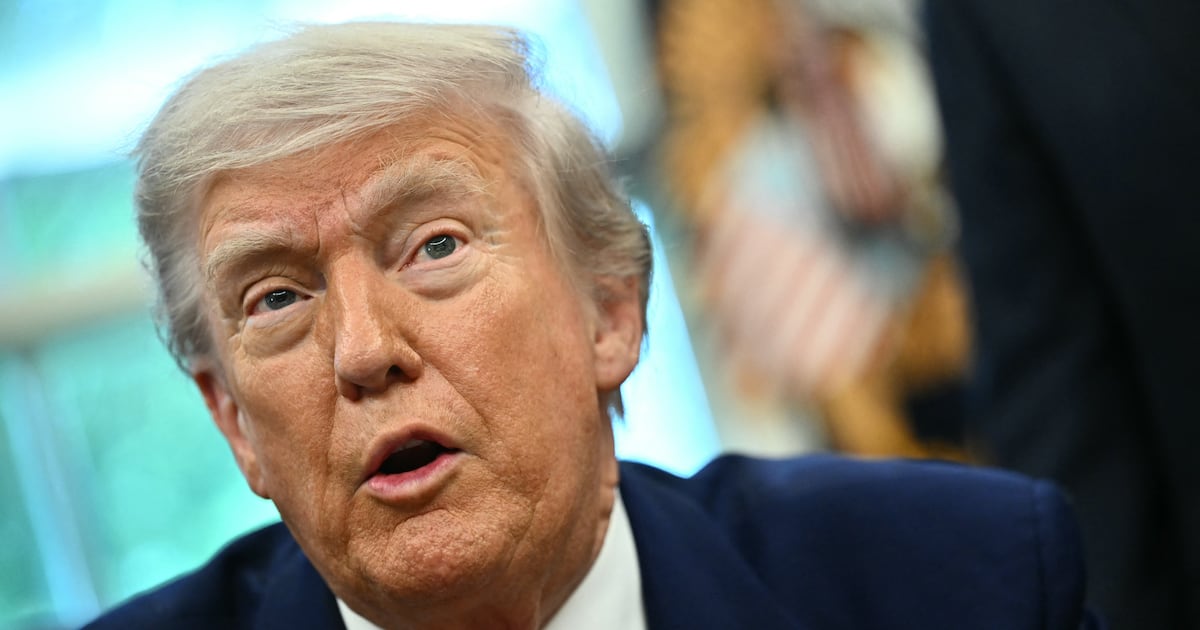
I’ve been having a recurrent and terrifying Oscar daydream which must have something to do with a short story by Delmore Schwartz that I once read.
In that famous tale (it was Vladimir Nabokov’s favorite) a man dreams that he is sitting in a theater watching a movie about his parents’ courtship and marriage. But just at the moment when his mother and father are about to exchange vows, he jumps out of his seat. “Don’t do it,” he screams. ”It’s not too late to change your minds, both of you. Nothing good will come of it. Only remorse, hatred, scandal and two children whose characters are monstrous.”
No one seriously thinks Langella is going to trump Rourke this year, or Sean Penn for that matter. But I like to imagine that Langella has a chance because it intensifies the already suspenseful acting contests to a stark polarity: The art of acting versus the hallucination of acting produced by special effects.
In my waking nightmare, Mickey Rourke is about to receive an Oscar for his dreadfully overrated performance in The Wrestler. I leap out of my chair and shout to the Academy from the audience, “Don’t do it! You’ll set American acting back 20 years and create dozens of films in which the camera and special effects do the work of the actor. Get hold of yourselves!!” Then I’m dragged out of the glittering Kodak Theater and beaten senseless.
Sometimes, on a good day, I have a more pleasant fantasy. Frank Langella wins the Best Actor award for his role as Richard Nixon in Frost/Nixon, a surprising interpretation of that historical figure that deepened and heightened the movie to Shakespearean proportions. The art of acting has been saved.
No one seriously thinks Langella is going to trump Rourke this year, or Sean Penn for that matter. But I like to imagine that Langella has a chance because it intensifies the already suspenseful acting contests to a stark polarity: The art of acting versus the hallucination of acting produced by special effects.
In the 1950s, Method acting consecrated the face as the repository of emotional truth, a truth drawn from the actor’s personal experience. The Method’s triumph also made the closeup film’s most common convention. But there is a universe of difference between, say, Brando’s Don Corleone, with his mouth wired and tissue paper stuffed in his cheeks, and Rourke’s reported five surgical reconstructions of his face, which predetermined his role in The Wrestler. I doubt Rourke even had to read for the part, except for form’s sake.
Consider, too, the super-sophisticated transfigurations through time of Brad Pitt’s face in The Curious Case of Benjamin Button; and—to include the nominations for Best Supporting Actor—Robert Downey Jr.’s blackface and Heath Ledger’s role as the Joker, a performance in which his face was entirely disguised and concealed. You could say that just as print and digital media are in a wrestling match unto death, the Hollywood movie is also experiencing a fateful contest between special-effects magic and the type of cinematic enchantment that flows from art, not technology. As we go from page to screen, so we go from the actual face on the screen to the super-sophisticatedly mutated simulacrum of an actual face on the screen.
Which means that the real contest this Sunday is between impersonation and acting. The actor who is impersonating a character seeks to fulfill our familiar expectation of that character, as when a comedian impersonates John Wayne by reproducing Wayne’s most prominent traits. In the impersonator’s repertoire, makeup and facial reconstruction play the most important role (think of the Elvis impersonators).
On the other hand, the actor who acts rather than impersonates a character surprises and upsets our familiar expectation of that character. Think back to the classic Method performances. Does Brando play Terry Malloy, the down-and-out ex-boxer in On the Waterfront, as a hulking brute, held hostage to his loneliness and isolation by his inarticulateness, and by his lack of self-control and self-knowledge? No, because you’d expect an ex-boxer on the skids to be dumb, unlucky, lonely, and imprisoned by his physicality.
Instead, Brando’s Terry hangs his head and plunges his hands into his pockets like a little boy, (legendarily) slips his hand into Eva-Marie Saint’s glove as though experimenting with being a woman, suddenly dances with her in a bar nimbly, almost daintily, and manages to be eloquent without being articulate: “I coulda been somebody. I coulda been a contenda.”
In harsh contrast to Brando’s Terry, Rourke plays Randy “The Ram” Robinson just the way you would expect a professional wrestler down on his luck to be played: as a hulking brute, held hostage to his loneliness and isolation by his inarticulateness and by his lack of self-control and self-knowledge. The one “surprise” Rourke has up his sleeve is the corny, staged moment when he dances in an abandoned shorefront building with his estranged daughter—a Xerox copy of the scene where Brando dances with Eva-Marie Saint.
“Played,” though, is too strong a word for Rourke’s non-performance. He barely speaks, and he does nothing interesting with his body—unlike Brando almost girlishly sauntering down the wooden plank as he taunts Lee J. Cobb in On the Waterfront’s climactic scene. Instead of playing the character, Rourke is played by the camera and by the special effects. Bloody glass hanging from his skin, staples being gouged out of his flesh, bodies flying, bones crunching—after pulverizing Randy in every way possible, the film fills out his character simply by training the camera on his battered face and body for a few seconds every now and then. As for Rourke himself, he seems less to inhabit the character than to be inhabited by the character’s long golden locks, which he can’t seem to stop being aware of throughout the film. I’m not denying The Wrestler’s power as a film. I’m arguing that its power as a film is what accounts for the illusion—or delusion—of Rourke’s talent as an actor.
Even Sean Penn’s much superior performance as Harvey Milk results in a more polished type of impersonation. Penn’s Milk is a flawlessly plausible re-creation of the kind of person we might think Milk actually was. That’s the problem. We expect Harvey Milk to be a charming, decent, compassionate, sensitive man, driven by an obscure iron part of him that grows stronger and more obdurate as the film proceeds.
But Penn’s character has not one flash of ego, or instance of selfishness, or of cruelty (accidental or deliberate), or self-delusion. In other words, Penn’s Milk might be plausible, but he is not believable. Penn plays Milk like the sacred ideal of the gay man. The only “brave” thing Penn does in the role—if you’re one of those who actually considers it brave—is to passionately kiss other men on the mouth, which does not exactly run counter to anyone’s expectation of what gay men do.
In 2008, if you wanted surprise, and the revelation of character unimpeded by the camera’s rapid rescues and distracted acrobatics, you could not have done better than relish Frank Langella’s performance as Richard Nixon. (Or savor Richard Jenkins’s wrenching, gemlike portrait of grief giving way to hope and then blooming into hyperactive sorrow in The Visitor.)
Langella’s is not the crazed, antic, merely paranoid and vindictive Nixon that flourishes in the popular imagination, and was institutionalized, as it were, by Anthony Hopkins’ frenetic, almost campy impersonation in Oliver Stone’s film. Langella’s Nixon has something no public interpretation of Nixon has ever possessed: self-knowledge.
Early on, Langella tells his chief aide, superbly played by Kevin Bacon, that he’s going to hire some Cubans to spy, Watergate-style, on David Frost, after he agrees to be interviewed by Frost. Bacon stares at him with panic rising in his eyes. This is the lunatic villain right out of Central Casting! But Langella casts him a stern glance and says: “I’m only joking.” In one stroke, a new Nixon, like a new planet, swims into view.
This Nixon isn’t about to fall to pieces from the pressure of his inner demons. Yawn. Langella’s Nixon is—like Brando’s Don Corleone—a self-possessed, powerful man, who expresses his power by talking and moving slowly, speaking softly, and cannily pulling other people’s mental strings. Rather than responding excitedly to slights, provocations and feared conspiracies, this Nixon is a former leader of the free world—that is to say, his inner ballast and experience of power are so strong that he seems to be humoring reality rather than encountering it. He has experienced, and mastered, too much of the world to be much agitated by it.
That’s not to say that the demons aren’t there, but they are one important segment of this character’s gigantic psychic population. Perhaps the most startling quality that Langella brings to the role is Nixon’s practical intelligence. His frank desire for money has the disarming earthiness of a strictly budgeting housewife from Peoria.
So when Michael Sheen, expertly playing David Frost, finally pries from Langella’s Nixon—during their final TV interview—regret over his crimes, and something like an apology to the American people, you don’t feel that Nixon has been finally tripped up and that the good guys in the white hats have vanquished the black-hatted villain. You feel that Nixon has given up precisely what he is able to give up and no more, and that he makes his avowal in a complicated mesh of self-knowledge, fear of the truth, sudden horror and King Lear-like isolation, all anchored by that sense of having mastered the world, of belonging to history.
And Langella conveys all this complexity while the camera stays on his face for what feels like minutes, which for most actors nowadays is the equivalent of bungee-jumping off the Empire State Building.
As Sam Rockwell—playing James Reston Jr., one of Frost’s consultants for the Nixon interviews—puts it, the triumph of Frost’s Nixon interviews was achieved by “the reductive power of the closeup.” The fate of the honest disclosure of human emotion through the art of acting—through the human face—is the real story, and the real test, behind this year’s Oscars. Plea to the Academy: Don’t do it!!
Lee Siegel writes about culture and politics and is the author of three books: Falling Upwards: Essays in Defense of the Imagination; Not Remotely Controlled: Notes on Television; and, most recently, Against the Machine: Being Human in the Age of the Electronic Mob. In 2002, he received the National Magazine Award for Reviews and Criticism.






